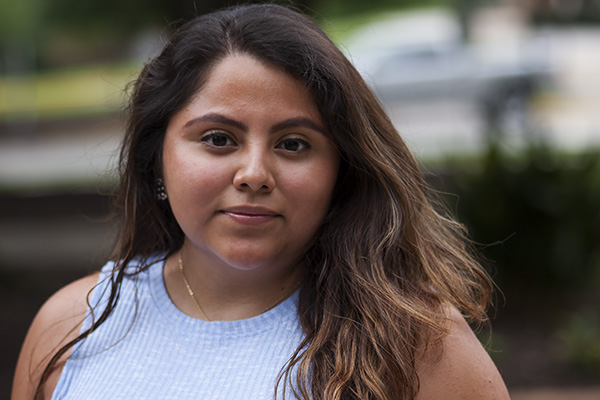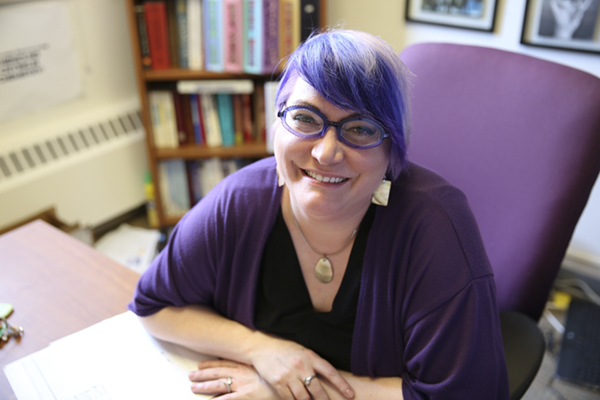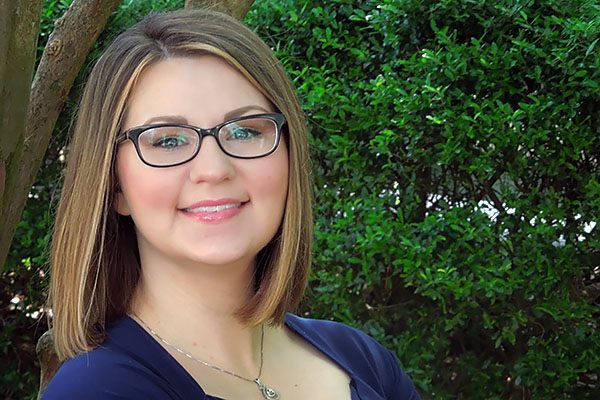Gina Diodati
Gina Diodati found opportunities to lead within a wide variety of organizations as a student at the University of North Georgia (UNG).
She was the Student Government Association (SGA) vice president on UNG's Dahlonega Campus for 2021-22 and the president of the Honors Program. Diodati conducted research with faculty from UNG, Georgia Institute of Technology, Boston University and the University of Florida.
Before graduating, she received a five-year annual stipend of $31,000 to pursue a Ph.D. in inorganic chemistry at the University of Florida.
Yet as the Dahlonega, Georgia, native earned a degree in chemistry in May 2022, she aimed to ensure that others don't see such success as unattainable. She made it clear that she always looks for ways to improve and encourage others as they seek to find their niche.
"You want to make sure people around you understand you're not always going to have all the answers," Diodati said. "Being open about that is an opportunity for learning and personal growth. It makes others feel OK when they're struggling."
As the former president of UNG's Society of Engineering Students and former president of UNG's Women in STEM, she aimed to regularly be available so fellow students can come to her for help.
"I see myself as a vessel who can help others do great things. I want to be someone who encourages people to do their best," Diodati said. "Through my roles at UNG, I'm getting the opportunity to encourage people and push them to pursue what they want. I've been timid with my own goals, but I've grown bolder in pursuing what I'm passionate about."
For two years, Diodati studied organic semiconductors that can be used in organic light-emitting diodes, which are most commonly used in cellphones and televisions.
She also conducted lab research synthesizing single-molecule magnets under the guidance of faculty at University of Florida and alongside her brother Alex Diodati, '19.
In 2021-22, she assisted UNG associate professor Dr. Ryan Meier with research into nickel (II) carbene complexes for use in catalysis. Diodati thrives on her research opportunities.
"It's always about trying to find creative ways to seek solutions. The key is not feeling bad for how long it takes you," Diodati said. "It's not a reflection of our ability. It's just the nature of research."




